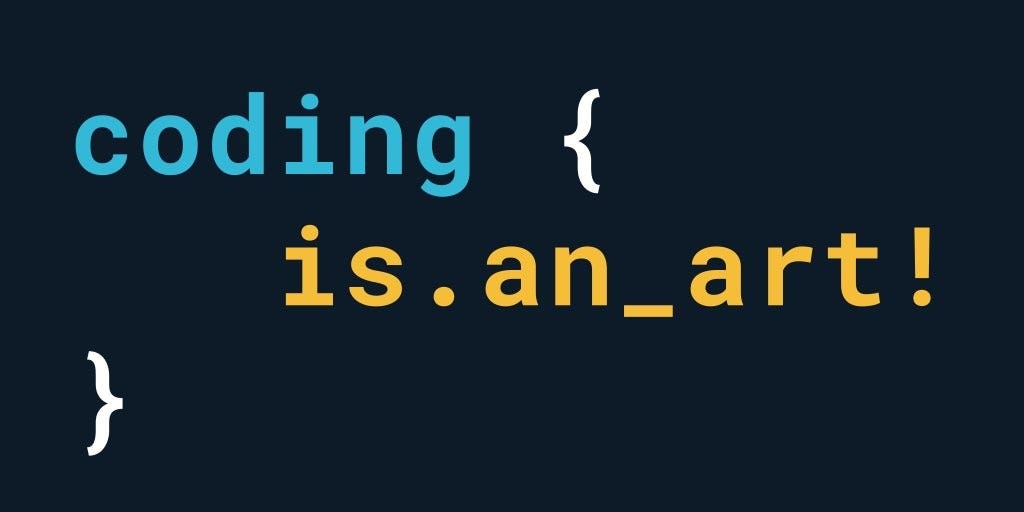The Art of Writing Perfect and Sustainable Code 🎨✨
The Art of Writing Perfect and Sustainable Code 🎨✨
In the ever-evolving world of software development, writing perfect and sustainable code is not just a skill but an art. Sustainable code is clean, maintainable, and robust, ensuring your applications remain reliable and adaptable for years. Let’s dive deep into the principles and best practices to master this art! ⚙️✨

1. Write Clean and Readable Code 🔧
What it means:
Clean code is self-explanatory, consistent, and easy to understand. It’s like writing a story where every piece of code has a clear purpose.
Tips:
- Use meaningful variable and function names:
# Bad
def p
# some process
end
# Good
def process_user_data
# meaningful process
end- Stick to a consistent coding style: Use tools like RuboCop for Ruby or ESLint for JavaScript to enforce standards.
- Avoid magic numbers:
# Bad
discount = price * 0.05
# Good
DISCOUNT_RATE = 0.05
discount = price * DISCOUNT_RATE2. Follow the DRY Principle ♻️
What it means:
DRY (Don’t Repeat Yourself) ensures you avoid code duplication. Every piece of knowledge in your code should have a single, unambiguous representation.
Example:
Instead of duplicating logic across files, extract common functionality into helper methods or services.
# Bad
class OrdersController
def calculate_total
# calculation logic
end
end
class CartController
def calculate_total
# duplicate calculation logic
end
end
# Good
class CalculationService
def self.calculate_total(items)
# reusable calculation logic
end
end3. Embrace the SOLID Principles ⚖️
The SOLID principles are the foundation of sustainable software design. Let’s break them down:
Single Responsibility Principle (SRP) ✍️
Every class or method should have one, and only one, reason to change.
# Bad
class User
def save_to_database
# saving logic
end
def send_email
# email logic
end
end
# Good
class UserDatabase
def save(user)
# saving logic
end
end
class UserNotifier
def send_email(user)
# email logic
end
endOpen/Closed Principle (OCP) 🔒
Your code should be open for extension but closed for modification.
# Bad
class Report
def generate(type)
if type == :pdf
# generate PDF
elsif type == :html
# generate HTML
end
end
end
# Good
class Report
def generate(formatter)
formatter.generate
end
end
class PDFFormatter
def generate
# generate PDF
end
endLiskov Substitution Principle:
Subclasses should be substitutable for their parent class.
Interface Segregation Principle:
Don’t force a class to implement methods it doesn’t need.
Dependency Inversion Principle:
Depend on abstractions, not on concrete implementations.
4. Test Your Code Thoroughly ✅
Writing sustainable code is incomplete without proper testing.
Types of Testing:
- Unit Testing: Tests individual units of code.
- Integration Testing: Ensures different modules work together.
- End-to-End Testing: Tests the entire application flow.
Example in Rails:
Use RSpec to write robust tests:
RSpec.describe User, type: :model do
it 'is valid with valid attributes' do
user = User.new(name: 'John Doe', email: 'john@example.com')
expect(user).to be_valid
end
it 'is invalid without a name' do
user = User.new(email: 'john@example.com')
expect(user).not_to be_valid
end
end5. Document Your Code 📚
Even the best code needs documentation. Clear documentation ensures your code is accessible to others (and future you!).
Best Practices:
- Inline Comments:
# Calculate the total price including tax
def calculate_total(price, tax_rate)
price + (price * tax_rate)
end- Use README files to explain project setup and usage.
- API Documentation: Use tools like Swagger or RDoc.
6. Optimize for Performance 🚀
Sustainable code is efficient and performs well under load.
Tips:
- Use caching to reduce database queries:
# Bad
posts = Post.all
# Good
posts = Rails.cache.fetch('all_posts') { Post.all }- Optimize database queries using ActiveRecord:
# Bad
users.each do |user|
puts user.posts.count
end
# Good
users.includes(:posts).each do |user|
puts user.posts.size
end7. Refactor Regularly 🌈
Refactoring is the process of improving your code without changing its functionality. It helps you keep your codebase clean and maintainable.
Tools for Refactoring:
- Code Climate: Identifies code smells.
- RubyMine: Provides intelligent refactoring suggestions.
8. Use Version Control Effectively ⚙️
Git is your best friend when it comes to maintaining sustainable code.
Tips:
- Write meaningful commit messages:
# Bad
Fix bugs
# Good
Fix null pointer exception in user login flow- Follow Git workflows like GitFlow for better collaboration.
9. Avoid Premature Optimization 💡
While performance is important, optimizing too early can lead to complex code. Write clear and correct code first, then optimize as needed.
10. Always Keep Learning 🎓
The tech world evolves rapidly. Stay updated with new tools, frameworks, and best practices to keep your code sustainable.
Conclusion
Writing perfect and sustainable code is a continuous process. By following these principles and practices, you’ll not only create software that stands the test of time but also bring joy to every developer who works on it after you.
Happy coding! 🌟💻
Comments
Post a Comment